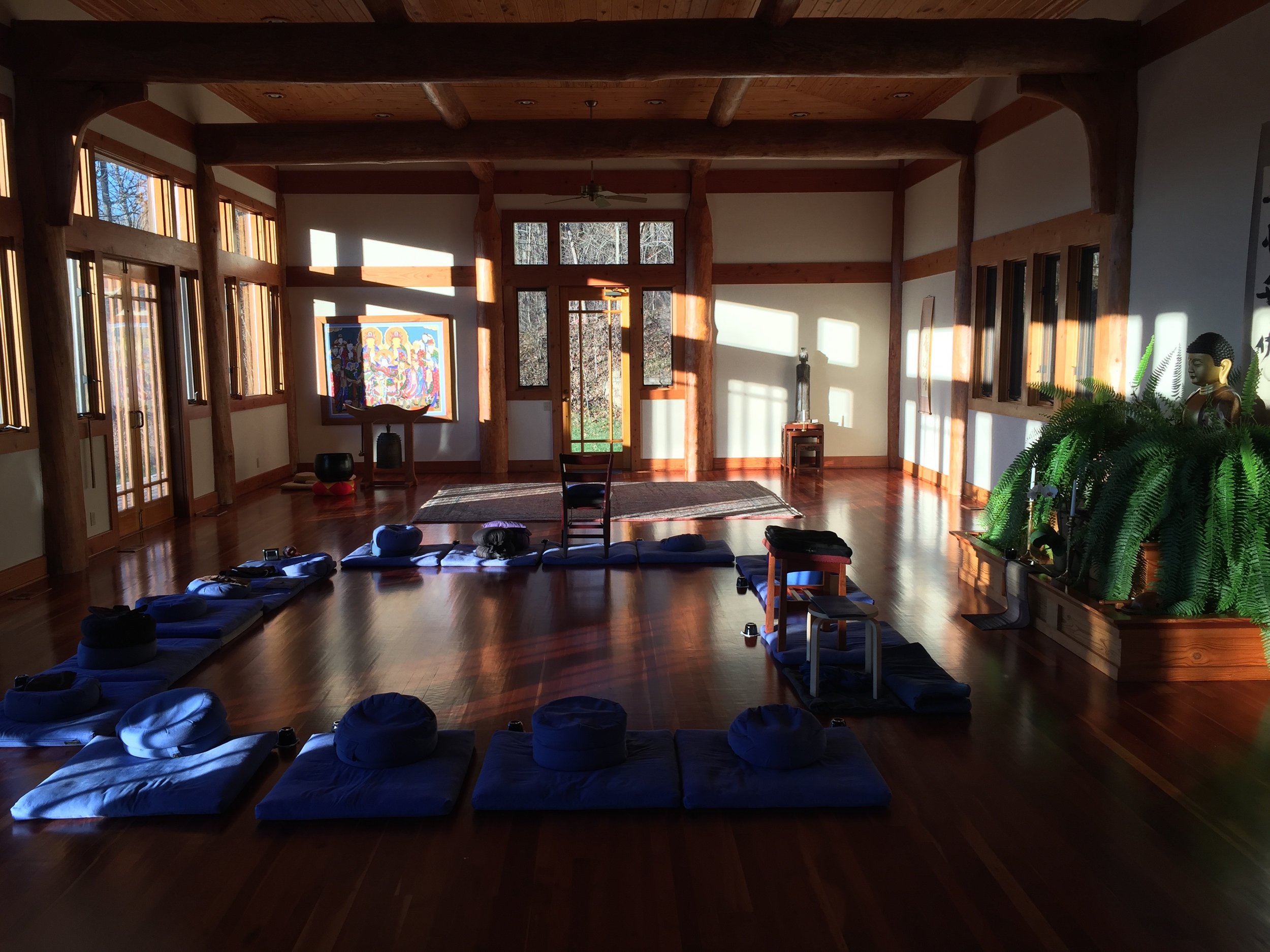The Tiny Habit of Meditation
Branch in Snow
The Problem with Motivation
When I started my meditation practice more than 25 years ago, the biggest problem I had was cultivating a regular meditation practice. I always had the best of intentions, and promised myself that I would meditate tomorrow for sure but for some reason or other I was unable to build a regular practice at home for a long time. When I asked my teachers how to build a meditation practice, they would tell me to find 5 minutes a day to meditate but somehow it never worked consistently for me.
This holiday season, as I was reading a book by BJ Fogg, I realized that a good way for someone to build a regular meditation practice was to take small tiny steps. One of the central tenets of the book was that motivation is often an unreliable indicator on how effectively we can make behavioral changes. All of us are familiar with our numerous failed new year resolutions. We start off motivated and full of enthusiasm, but taper away very soon. BJ Hogg’s book, Tiny Habits, offers a way to make behavioral changes by making small perturbations to the system. The other key insight the book offered was that to change a habit, it is helpful to have an anchor habit that you can associate your new habit with and combine the two habits.
I tried making changes using the Tiny habits methods to introduce a new change in my meditation practice, and it was very successful. Below are a few learnings that I learned form my practice. According to a widely quoted scientific study, the average time it takes to develop a habit is between 18 days to about two months, depending on the habit you are learning and personality type. Please be patient and work with your meditation habit.
1) Finding an Anchor Habit: Brushing Teeth
According to numerous studies, it always very difficult to develop a new habit in vacuum. It is easier to add a new habit on top of an existing habit rather than creating a new routine. Most people don’t like changing their routine. I found that one of the easiest ways to develop a new habit is to add the new habit on top of an existing habit that one does every day. In my case I chose to meditate for 5 minutes after brushing my teeth in the morning and evening. Brushing teeth is something we do everyday, and it is a habit that is ingrained in most of us, so it makes an excellent anchor habit to develop a new habit and combine both of them.
Anchor Habit: Brushing Teeth
2) Add 5 minutes of meditation after brushing teeth
The thing to realize that meditation is a process that requires training the mind. It is a skill that you need to develop just like any another skill, like lifting weights for example. Nobody starts with lifting 300 lbs right away. You start small, and then you progressively lift heavier weights as you develop skill. It is the same with meditation. It takes time.
5 minutes a day is a good start towards building a meditation habit.
Remember the goal is not to become a master meditator but get comfortable with the habit of sitting for 5 minutes.
At the beginning even 5 minutes a day will seem very long, and the mind will come up with all kinds of excuses to tell you why it is a waste of time.
The function of the mind is not to sit still, and it constantly searches for the next new experience or new thought to latch on to when you sit.
Ignore the mind. You have 1440 minutes in a day. You are taking only 5 minutes from the total.
Mind clouded by thoughts and emotions. The SKY is pristine underneath the clouds.
3. Tips for creating a successful habit
Download a timer that keeps track of your practice. I suggest the Insight Timer app. I have been using it for 5 years now and I found it really helpful to keep track of my meditation practice.
Create an altar or sacred space in your bedroom. It’s doesn’t have to be fancy, just a meditation cushion or an object that you treasure. Keep coming back to the same space and sitting in the same spot.
Once you brush your teeth, immediately go and sit on the cushion. Set your timer for 5 minutes.
Promise yourself that you will not get up until the timer goes off. The world will not change in 5 minutes.
Don’t practice any fancy techniques while meditating. Just sit still without moving too much.
The idea is get comfortable with the idea of doing nothing for 5 minutes.
You will be surprised how many important things come up when you sit still. Ignore them. You have 1440 minutes available in a day, you are taking 5 minutes from it.
The mind will try to convince you about the stupidity of your meditation habit. Ignore your mind.
If you miss a meditation session, go brush your teeth and meditate. You are creating an association between brushing your teeth and meditation till it becomes automatic.
Sitting Still
4. Final thoughts:
It is much easier to change if you make small changes to your behavior. In the long run it is lot more helpful to do 5 minutes of meditation every day instead of 1 hour at random times of the week.
Remember you are getting used to the idea of sitting still for 5 minutes. This takes time.
Making small changes at a time gives you the confidence that you will be able to make large scale modifications to your behavior.
Sitting still is very difficult for all of us. It is not an automatic habit.
I will be interested to hear about your practice in the comments section. Feel free to share them.
Remember small changes in habit lead to big behavioral changes.
References:
https://tinyhabits.com
How are habits formed: Modelling habit formation in the real world: https://doi.org/10.1002/ejsp.674



